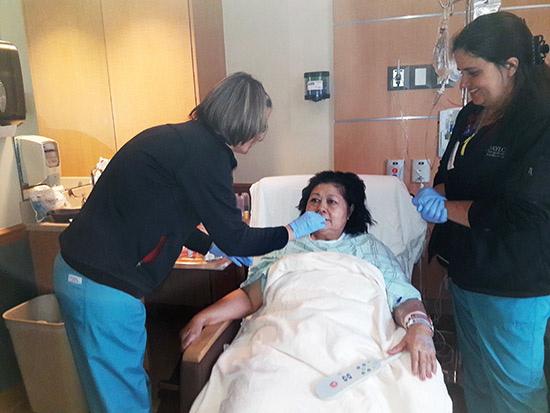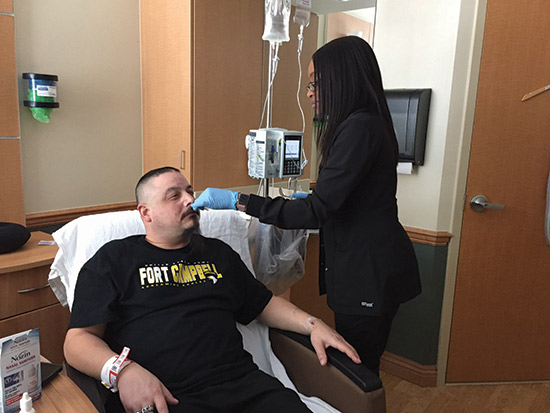Its quick, easy, fast-acting nature continues to grow its appeal.
 THE NOSE KNOWS Povidone-iodine can be an effective nasal decolonization method for patients undergoing a wide variety of procedures.
THE NOSE KNOWS Povidone-iodine can be an effective nasal decolonization method for patients undergoing a wide variety of procedures.
A promising 2019 study has shown that povidone-iodine could be a viable alternative to mupirocin for nasal decolonization with great potential for use in perioperative settings.
Researchers applied 10% povidone-iodine to patients' nostrils and nares. A statistically significant reduction in the average levels of methicillin-resistant Staphylococcus aureus (MRSA) 12 and 24 hours after the application was not shown. However, the researchers did discover a potent and rapid reaction to S. aureus, as the level of the bacteria both one and six hours after povidone-iodine application was low enough to demonstrate that a single preoperative nasal dose suppresses S. aureus long enough to be effective for most outpatient surgeries.
Each study participant received two swabs saturated with povidone-iodine per nostril. For a total of 15 seconds, each swab was rotated with slight pressure at least six times each, first around the nostrils' circumferences, then in the anterior nares with care taken to cover all surfaces. After the study, participants were surveyed to determine if any had experienced potential adverse effects, including eye irritation, unpleasant odor or taste, or nasal itching, redness or irritation. None was reported.
The study, published last year in the American Journal of Infection Control, demonstrates that povidone-iodine can be an effective nasal decolonization method for patients undergoing orthopedic procedures, and potentially most surgical patients. The researchers note that povidone-iodine is a more cost-effective option than a five-day treatment of the more widely used mupirocin as a nasal decolonization agent. The study also expresses concerns about strains of S. aureus becoming resistant to mupirocin, and notes that other research suggests that resistance could be less likely with povidone-iodine because it has multiple cellular targets.
While five-day mupirocin treatments are effective for short periods of time, the study showed that it, too, did not achieve reductions in S. aureus 12 hours after doses.
Because S. aureus can be present on other areas of the body, the study notes it could be beneficial to accompany nasal treatments with use of chlorhexidine gluconate bathing.
.svg?sfvrsn=be606e78_3)



.svg?sfvrsn=56b2f850_5)